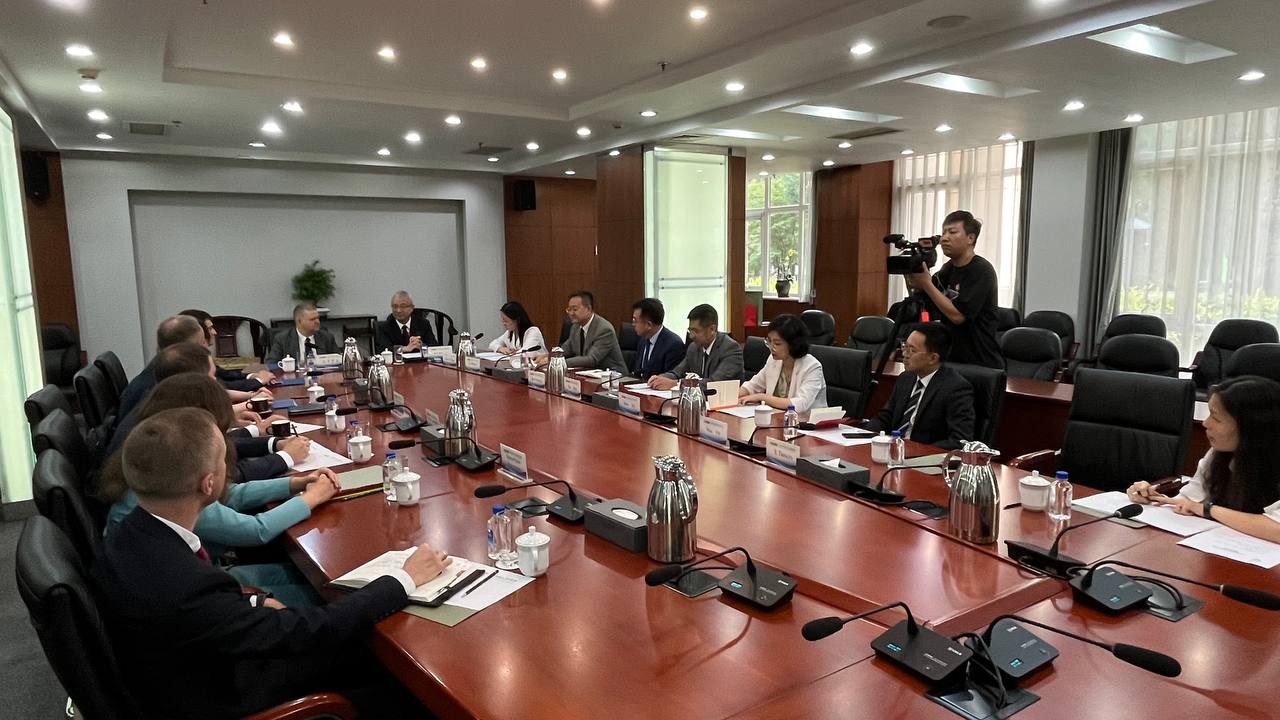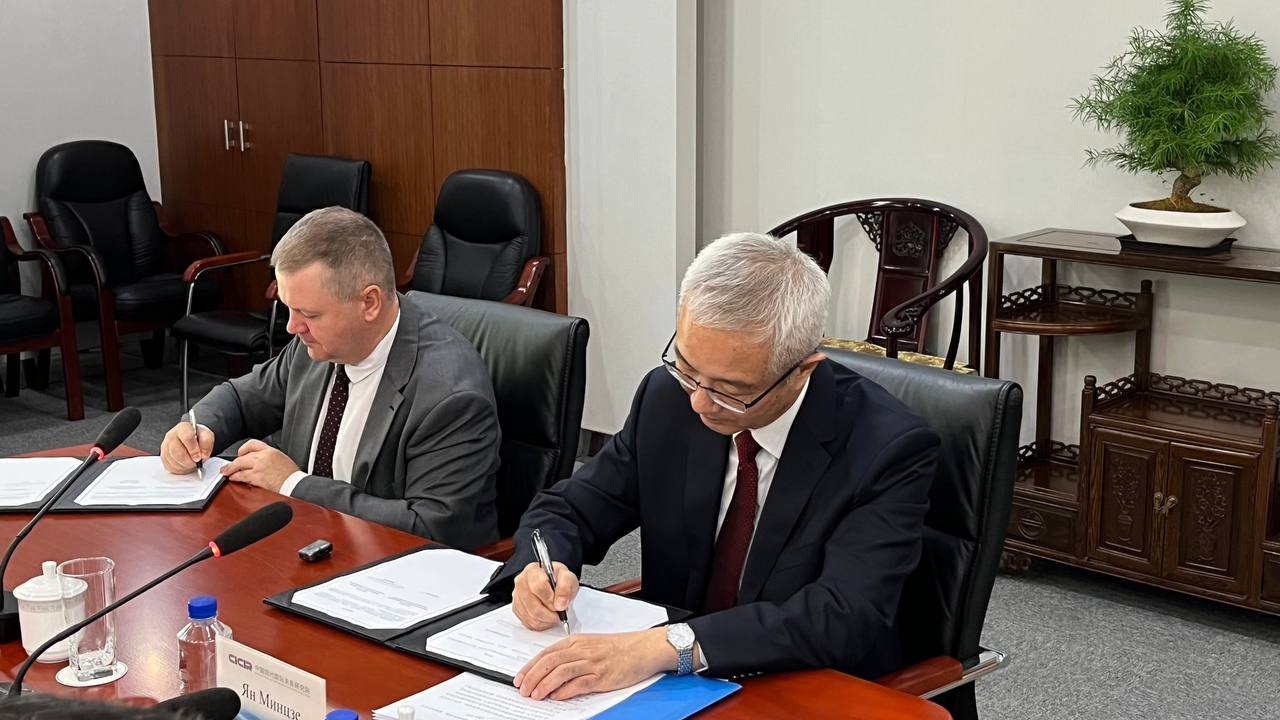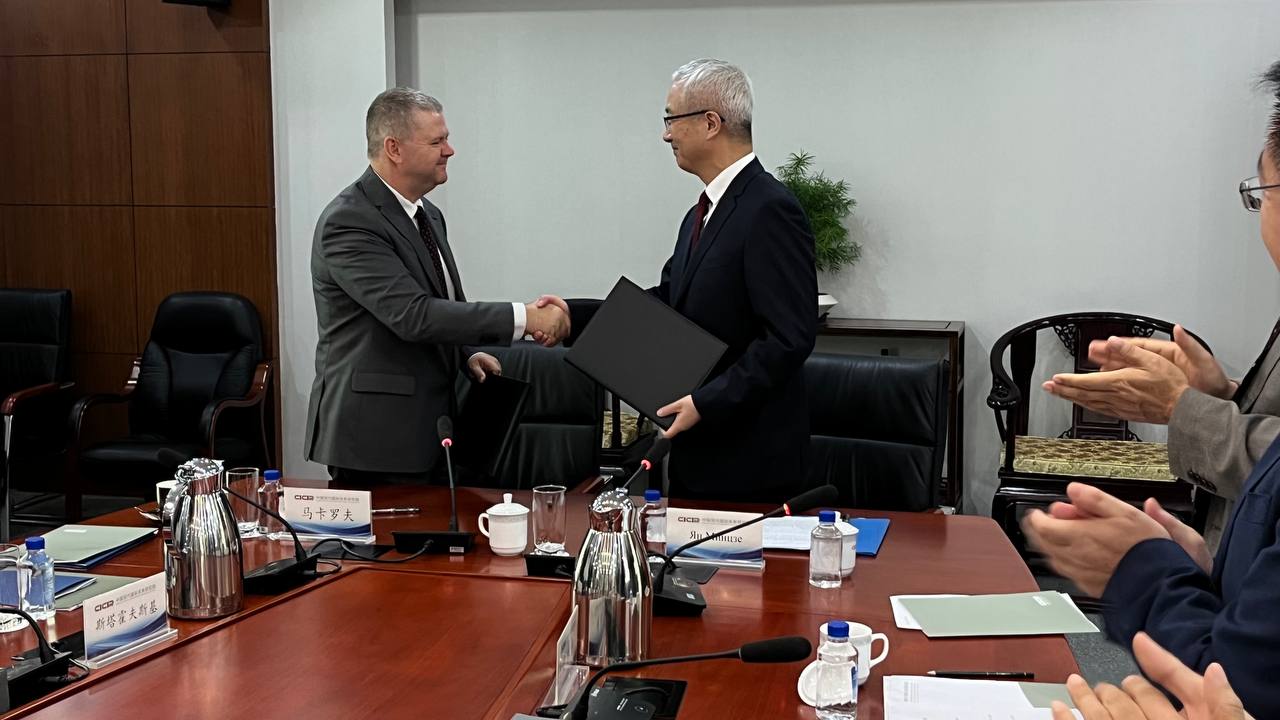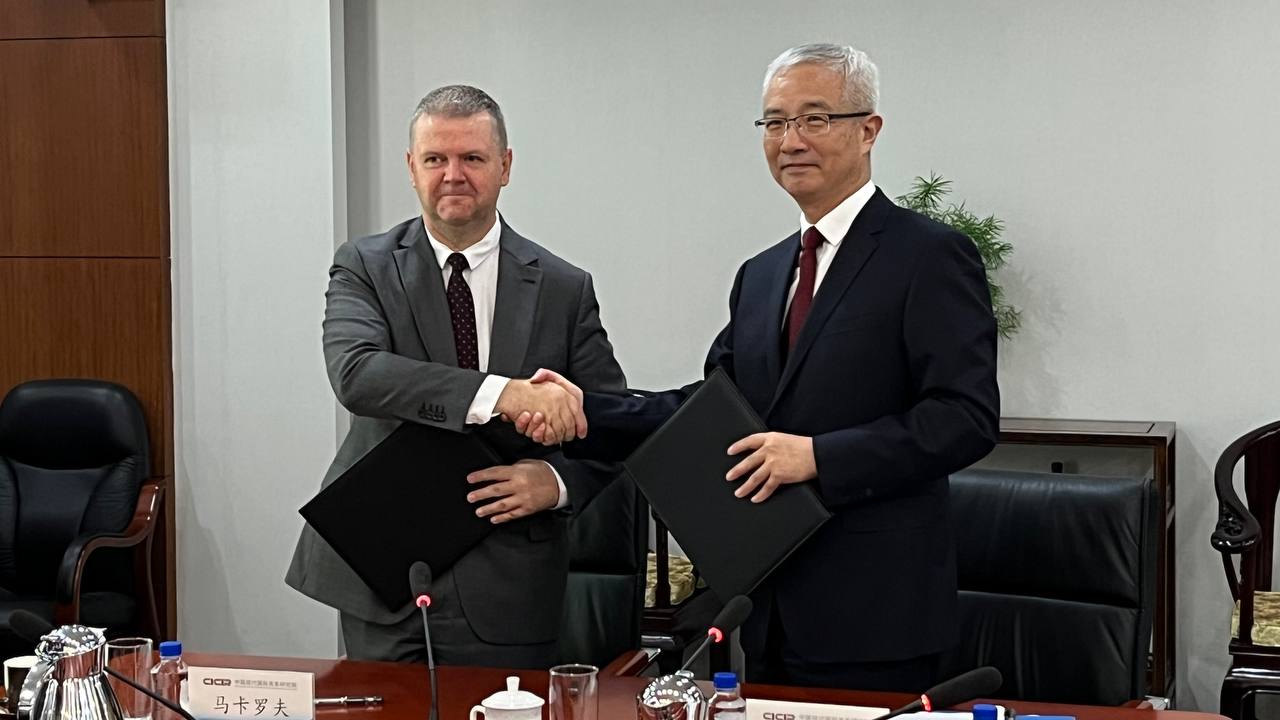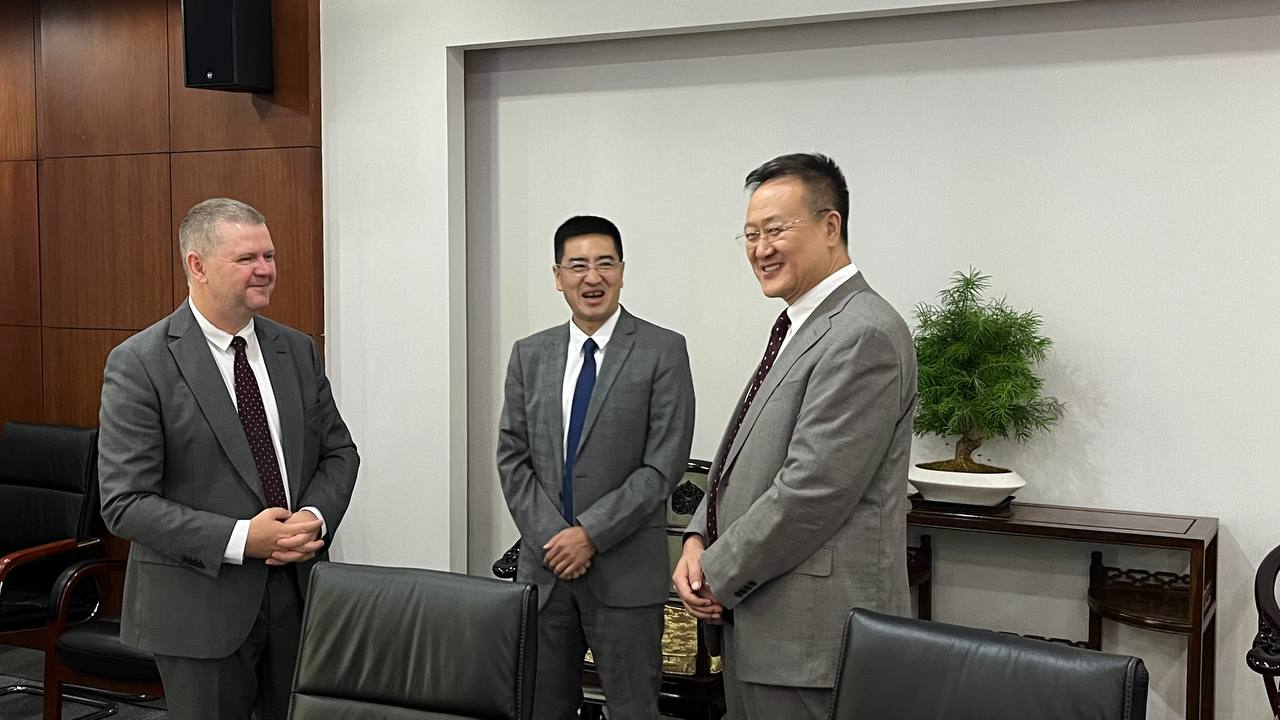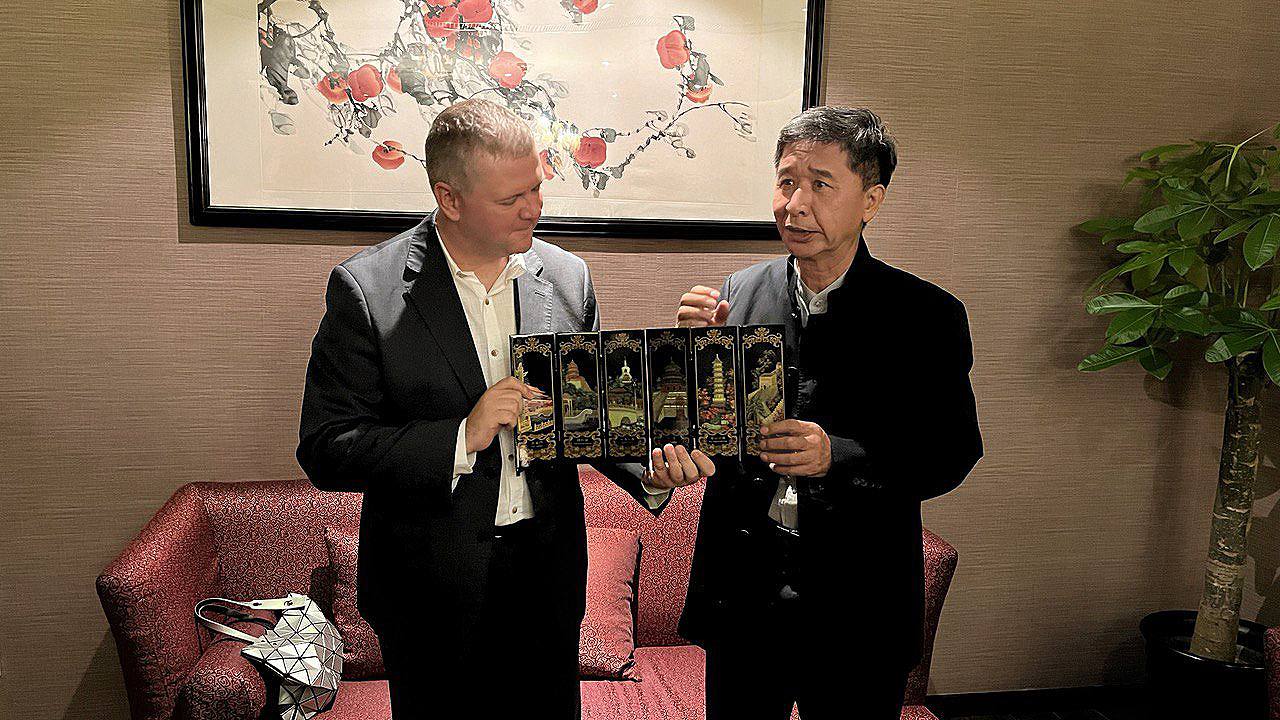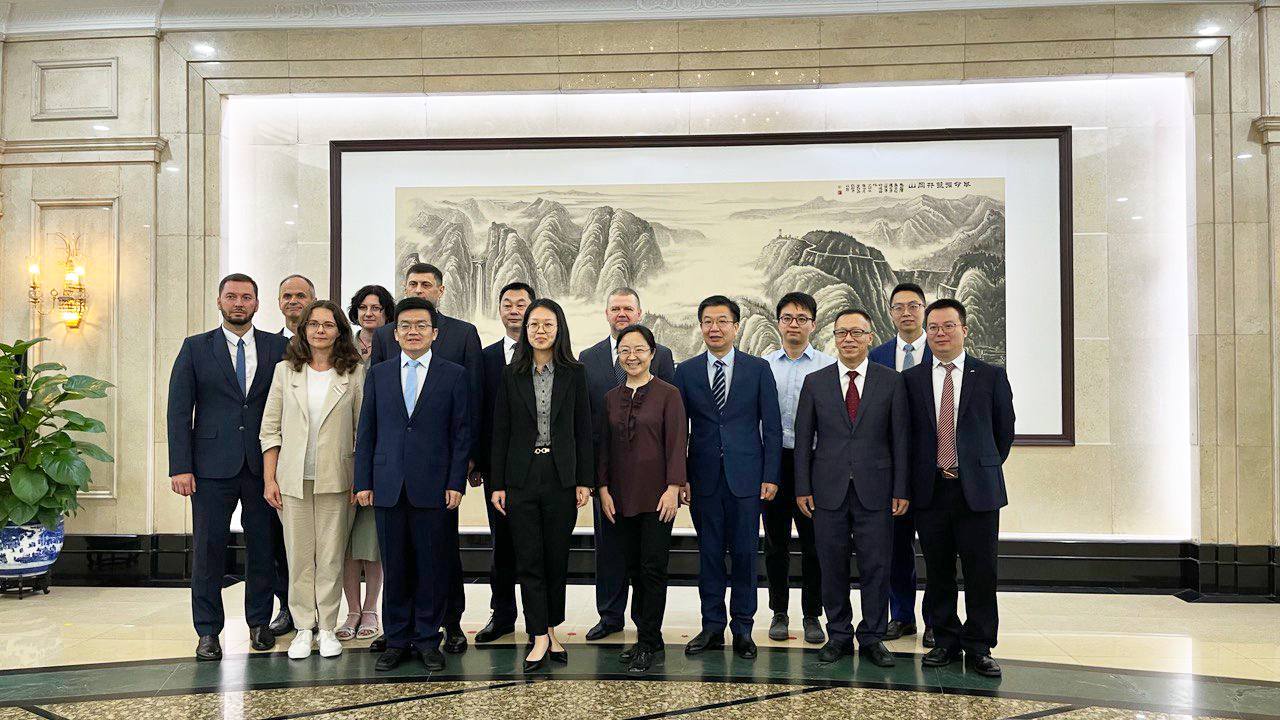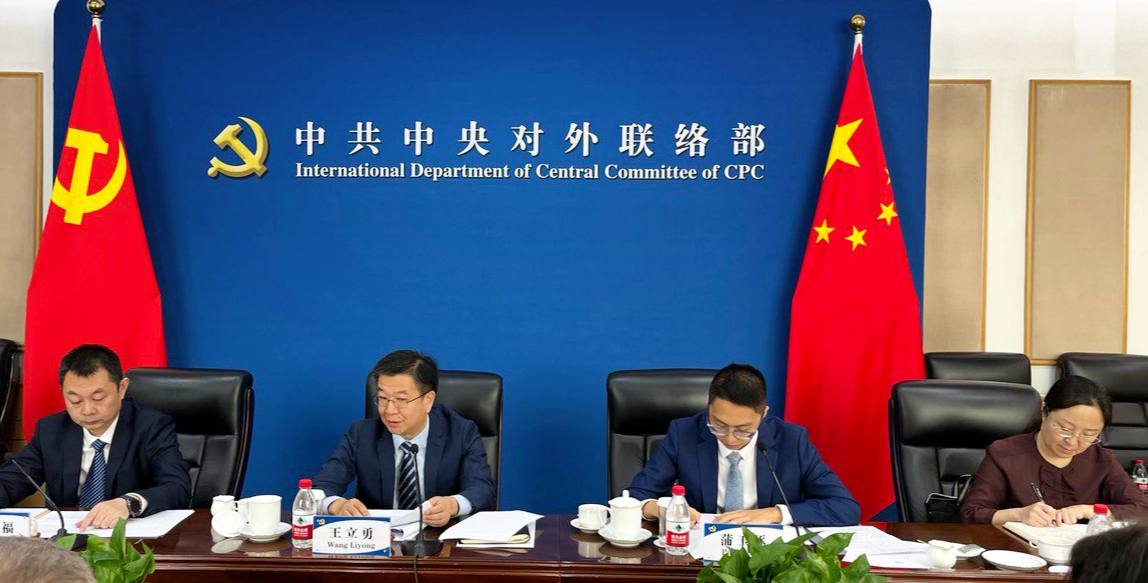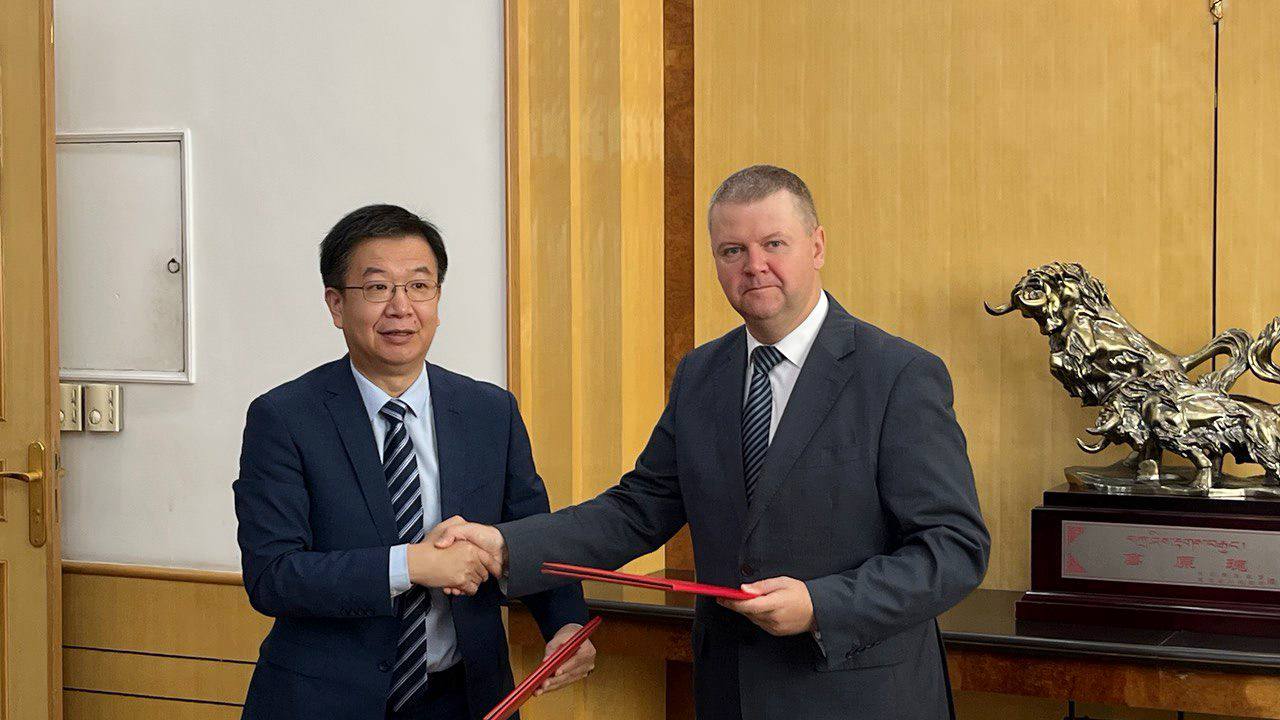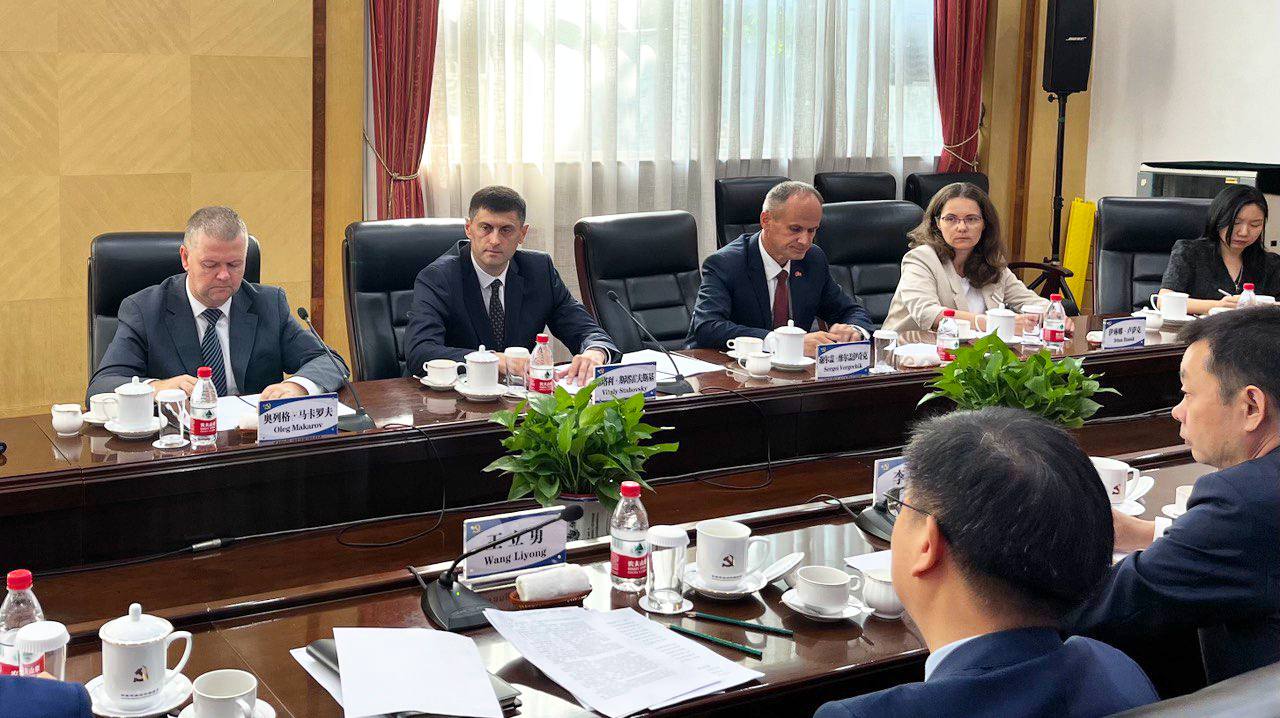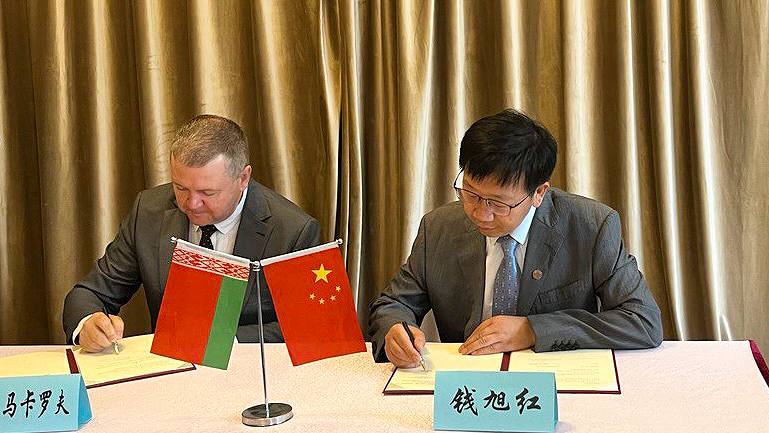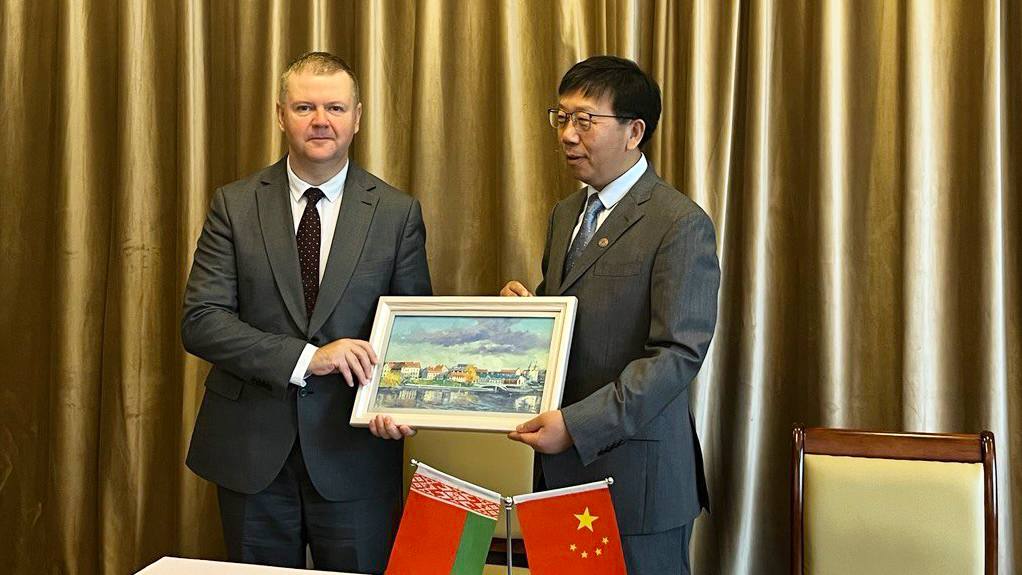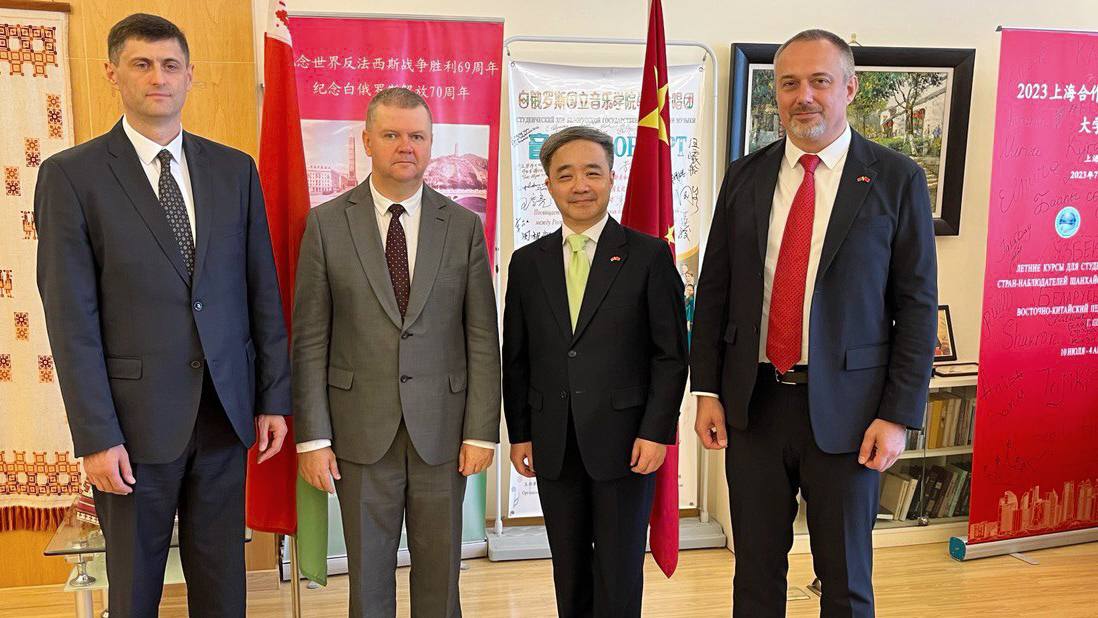On September 11-15, the BISR delegation headed by Director Oleg Makarov visited the People's Republic of China at the invitation of Yang Mingjie, President of the Chinese Academy of Modern International Relations (CASMO).
At the first stage, the delegation visited the capital of China, Beijing. The rich program of expert meetings included a reception at the International Department of the Central Committee of the Communist Party of China, negotiations with the heads of a number of leading Chinese think tanks, including events with analysts of partner think tanks of the People's Republic of China.
On the first day of his visit to the Chinese capital, the BISR Director Oleg Makarov met in Beijing with the CASMO President Yang Mingjie. The sides shared their views on the state and prospects of Belarus-China expert-analytical cooperation.
Following the negotiations, the parties signed a Memorandum of cooperation. An agreement was reached to continue the dialogue between the BISR and the Academy on issues of mutual interest.
There was also an informal meeting with the head of the Research Institute for Social Development of Eurasia of the Development Research Center of the State Council of the People's Republic of China Li Yongquan. In a warm and friendly atmosphere, analysts from the two countries discussed topical issues of enhancing cooperation between our think tanks.
On September 13, at the site of the International Department of the CCP Central Committee, the BISR Director Oleg Makarov met with Wang Liyun, head of the Center for Contemporary World Studies of the International Department of the CCP Central Committee, Deputy Secretary General of the Association of Silk Road Analytical Centers. The meeting was also attended by Li Junfu, Deputy Director of the 6th Department of the International Department of the CCP Central Committee.
The parties discussed issues of mutual interest in the development of expert interaction, including analytical support for the implementation of the Belt and Road concept and its components: the Digital, Green and Healthy Silk Road.
As a result of the negotiations, a Memorandum of cooperation was signed between BISR and the Association of Silk Road Analytical Centers. Founded in 2015, the organization unites 141 Chinese and 122 foreign think tanks and aims to promote cooperation within the framework of the Belt and Road initiative.
The admission of BISR to the Association will contribute to more effective expert and analytical support of the Belarusian-Chinese cooperation.
At the final stage of the visit to China, the delegation moved to Shanghai, where the second part of meetings and negotiations took place with an emphasis on strengthening interregional cooperation. The Consul General of the Republic of Belarus in Shanghai Andrey Andreev also took part in the expert events.
The point of attraction of the Belarusian-Chinese expert interaction during the Shanghai part of the trip was the East China Normal University (ECNU), where Oleg Makarov met with the ECNU President, Professor Qian Xuhong. The SIdes discussed the issues of establishing expert-analytical cooperation between the BISR, its regional branches and the ECNU Center for Belarusian Studies. Following the negotiations, the BISR Director and the ECNU President signed a Memorandum of Cooperation.
In more detail, the issue of expert interaction was worked out in the course of the BISR delegation's visit to the ECNU Center for Belarusian Studies – the first of the centers of Belarusian studies established in China. This platform, which has been operating since April 2012 to establish student intercultural exchange of Belarusian and Chinese students, popularization of Belarusian culture and language among Chinese students, makes an important contribution to expanding humanitarian ties between our countries.
At the meeting of the BISR management and analysts with the Center Director Bei Wenli and Chinese experts in the round-table format, the sides exchanged their views on the prospects for developing strategic cooperation between Belarus and China, the discussed directions of partnership taking into account local specialization.
Belarusian analysts also got acquainted with the exposition of art and culture objects from Belarus formed by the efforts of Chinese partners and with the library of Belarusian literature located in the Center.


